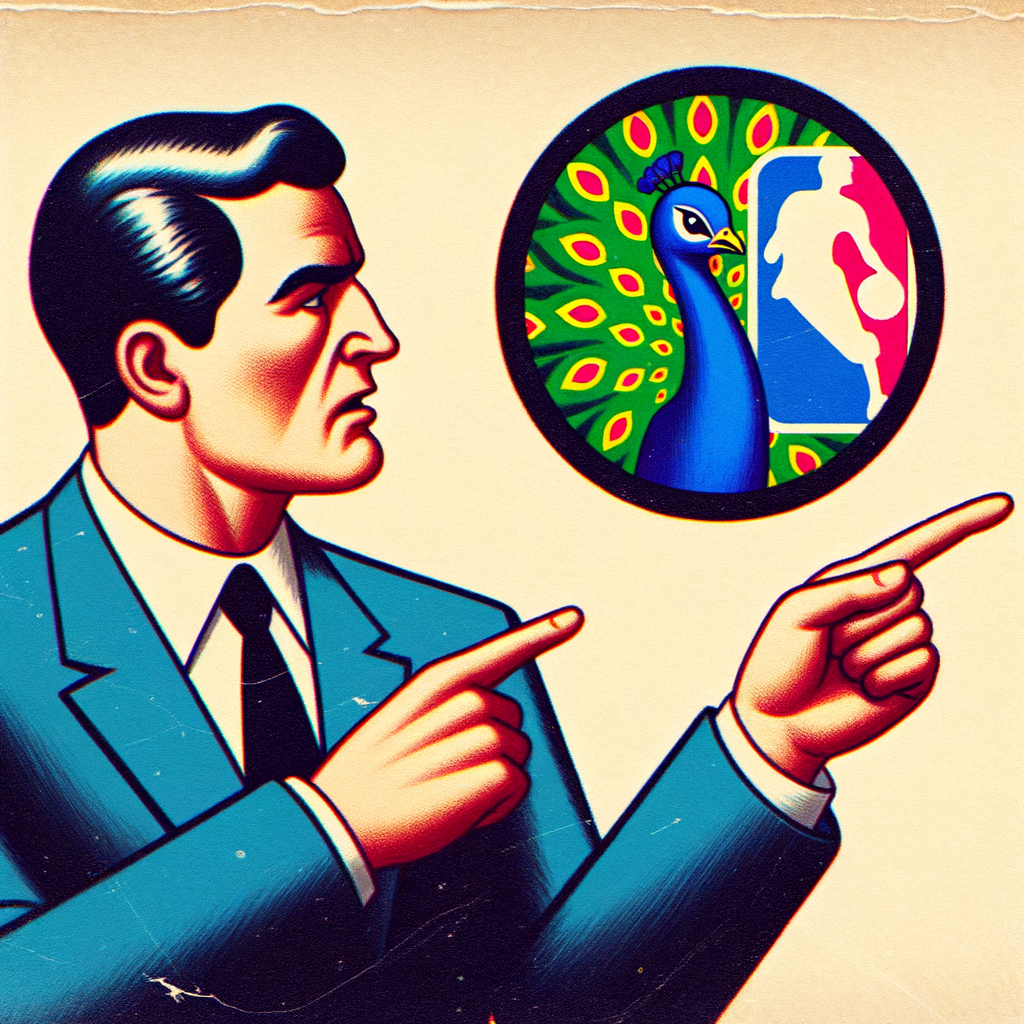The Impact of Exclusive Streaming Deals on Sports Fans: Analyzing the NFL-Peacock Controversy
The Impact of Exclusive Streaming Deals on Sports Fans: Analyzing the NFL-Peacock Controversy
In a move that has sparked both controversy and conversation, a U.S. Congressman has leveled a hefty accusation against the National Football League (NFL), claiming that the organization is ripping off fans by relegating playoff games to the Peacock streaming service. This decision, which places marquee matchups behind a paywall, has ignited a debate about the fairness of exclusive streaming deals and their impact on sports enthusiasts.
The heart of the issue lies in the NFL’s strategic partnership with Peacock, a streaming platform owned by NBCUniversal. By granting Peacock exclusive rights to broadcast certain playoff games, the NFL has effectively limited viewership to those willing or able to pay for the service. This shift from traditional broadcast methods to streaming platforms is a growing trend in the sports broadcasting industry, reflecting broader changes in how consumers access content in the digital age.
Critics argue that this move alienates a significant portion of the fan base, particularly those who have faithfully followed their teams through free-to-air broadcasts or basic cable packages. The congressman’s accusation resonates with many fans who feel sidelined by the increasing commercialization of sports. They contend that the essence of sports as a unifying and accessible form of entertainment is being compromised by the pursuit of higher profits through exclusive streaming deals.
However, despite the backlash, there is an optimistic perspective to consider. The evolution of media consumption has opened doors to innovative ways of experiencing sports. Streaming services offer a level of convenience and flexibility that traditional broadcast methods cannot match. Fans can now watch their favorite teams on multiple devices, from anywhere, without being tethered to a television schedule. Moreover, streaming platforms often provide additional content, such as behind-the-scenes footage, interviews, and analysis, enriching the overall viewing experience.
Furthermore, the NFL’s partnership with Peacock can be seen as a response to changing viewer habits. With a growing number of households cutting the cord and turning to streaming services for entertainment, sports leagues are adapting to meet their audience where they are. This transition is not without its growing pains, but it also presents an opportunity for innovation in how sports are presented and consumed.
The NFL-Peacock controversy also sparks a conversation about the value proposition of streaming services. As more exclusive content becomes available, consumers are forced to assess the worth of adding another subscription to their monthly expenses. In this light, the NFL’s decision could be a catalyst for streaming platforms to enhance their offerings and provide more compelling reasons for fans to invest in their services.
In conclusion, while the congressman’s accusation against the NFL highlights the tension between traditional broadcast models and modern streaming services, it also underscores a pivotal moment in sports broadcasting. As the industry navigates this transition, the ultimate goal should be to strike a balance that honors the loyalty of long-time fans while embracing the possibilities of digital innovation. If done thoughtfully, the evolution of sports broadcasting can continue to bring the thrill of the game to fans in new and exciting ways, without leaving anyone on the sidelines.
Navigating Sports Broadcasting Rights: The Debate Over NFL Playoff Games on Peacock
In a move that has sparked both controversy and conversation, a U.S. Congressman has leveled a bold accusation against the National Football League (NFL), claiming that the organization is “ripping off fans” by placing playoff games behind the paywall of the Peacock streaming service. This development has ignited a broader debate about sports broadcasting rights and the accessibility of live sports for fans across the nation.
The NFL’s decision to partner with Peacock, a streaming platform owned by NBCUniversal, represents a significant shift in the way audiences consume sports content. Traditionally, playoff games have been broadcast on national television, accessible to anyone with a TV set and an antenna or basic cable subscription. However, as the landscape of media consumption evolves, the NFL’s move to streaming platforms is seen by some as a natural progression, aligning with the viewing habits of a growing number of cord-cutters and internet-savvy fans.
Critics, including the outspoken Congressman, argue that this shift places an undue financial burden on fans, who now must subscribe to an additional service to follow their favorite teams through the most crucial part of the season. The sentiment echoes a broader concern that sports are becoming less accessible to the average viewer, potentially alienating a segment of the fan base that is either unable or unwilling to pay for multiple streaming services.
On the flip side, proponents of the NFL’s strategy point out the potential benefits of streaming services like Peacock. These platforms often offer enhanced viewing experiences with features such as multiple camera angles, in-depth analytics, and on-demand replays. Moreover, they provide an opportunity for the NFL to reach younger, digitally-native audiences who prefer streaming content over traditional television.
The debate also touches on the economics of sports broadcasting. The NFL, like other major sports leagues, is constantly exploring new revenue streams to support its operations and growth. Streaming deals can be lucrative, and they offer the league a chance to capitalize on the burgeoning market for online content. In this light, the partnership with Peacock can be seen as a strategic move to ensure the long-term financial health of the league and its teams.
Despite the controversy, there is an optimistic view that the current friction could lead to innovative solutions that balance the needs of all stakeholders. The NFL has a history of adapting to changing media landscapes, and there is potential for the league to develop models that make games more accessible while still capitalizing on the benefits of streaming platforms. This could include tiered subscription options, bundled packages with other services, or even single-game purchases for fans who only want to watch their team in the playoffs.
As the conversation continues, it is clear that the NFL’s foray into streaming is not just about one playoff season, but rather a glimpse into the future of sports broadcasting. The league’s decisions will likely set precedents for how other sports organizations approach their broadcasting strategies. With the right balance, the NFL could lead the way in creating a sports viewing experience that is both financially sustainable for the league and accessible for fans.
In conclusion, while the Congressman’s accusation has stirred up strong emotions, it also serves as a catalyst for a much-needed discussion about the future of sports broadcasting. As the NFL navigates this complex terrain, the ultimate goal remains clear: to deliver the excitement of playoff football to as many fans as possible, in ways that are both innovative and inclusive.







